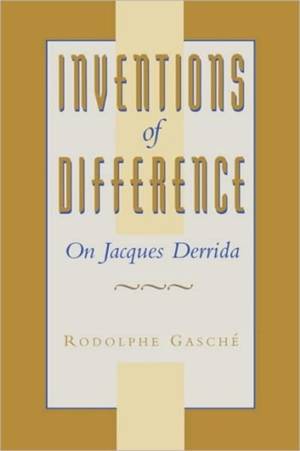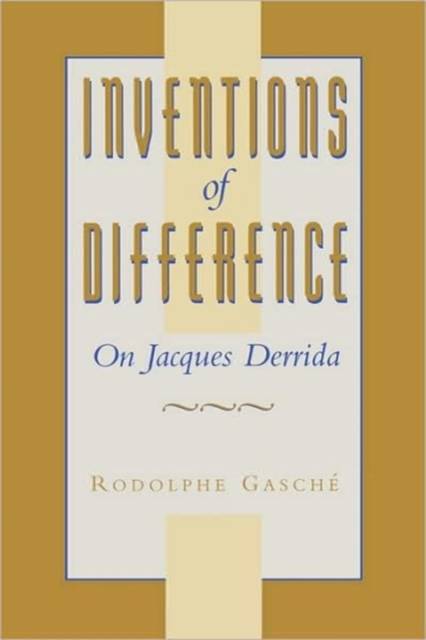
- Retrait gratuit dans votre magasin Club
- 7.000.000 titres dans notre catalogue
- Payer en toute sécurité
- Toujours un magasin près de chez vous
- Retrait gratuit dans votre magasin Club
- 7.000.0000 titres dans notre catalogue
- Payer en toute sécurité
- Toujours un magasin près de chez vous
88,45 €
+ 176 points
Description
Rodolphe Gasché, one of the world's foremost--and most provocative--authorities on Jacques Derrida, has news for deconstruction's devotees, whose traffic in the terms of "difference" signals privileged access to the most radically chic of intellectual circles: they do not know their Derrida. A deconstruction of the criticism that goes by deconstruction's name, this book reveals the true philosophical nature of Derrida's thought, its debt to the tradition it engages, and its misuse by some of its most fervent admirers.
Gasché's Inventions of Difference explodes the current myth of Derrida's singularity and sets in its place a finely informed sense of the philosopher's genuine accomplishment. Derrida's recent turn from philosophical concerns to matters literary, historical, and political has misled many of his self-styled followers, Gasché contends. Though less overtly philosophical, Derrida's later writings can be properly understood only in relation to a certain philosophical tradition, which Inventions of Difference cogently traces. Gasché shows that terms like "difference" and "other" are devoid of meaning outside the context of identity, a context that draws not only on Husserl's phenomenology and Heidegger's writings but also on the work of Hegel. By setting forth this affinity with Hegel, Gasché clarifies the philosophical weight and direction of Derrida's recent work and the philosophical engagement of his larger project. His book puts a stop to the loose talk of deconstruction and points to the real rigors and pleasures of knowing Derrida.Spécifications
Parties prenantes
- Auteur(s) :
- Editeur:
Contenu
- Nombre de pages :
- 296
- Langue:
- Anglais
Caractéristiques
- EAN:
- 9780674464438
- Date de parution :
- 05-08-98
- Format:
- Livre broché
- Format numérique:
- Trade paperback (VS)
- Dimensions :
- 156 mm x 236 mm
- Poids :
- 394 g

Les avis
Nous publions uniquement les avis qui respectent les conditions requises. Consultez nos conditions pour les avis.






